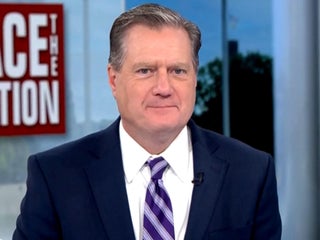
The latest developments regarding Iran's nuclear ambitions have sparked significant concern. Rep. Mike Turner, the chairman of the House Intelligence Committee, recently indicated that Iran might declare itself a nuclear weapons state by the end of this year. His comments, made during an interview on CBS's "Face the Nation," reflect a growing anxiety over Iran's nuclear capabilities and the impact of current U.S. policies.
Turner criticized the Biden administration’s handling of Iran, suggesting that recent policies have inadvertently accelerated Iran's progress towards nuclear weaponization. He mentioned that ongoing reports suggest Iran could make such a declaration by December. This potential escalation represents a critical issue for U.S. foreign policy, as it challenges the longstanding effort to prevent nuclear proliferation in the region.
During the interview, Turner was asked about any recent changes in Iran's stance on its nuclear program. While he acknowledged that the possibility of Iran declaring itself a nuclear state exists, he clarified that this declaration has not yet been made. Turner’s remarks also included a defense of former President Donald Trump's approach to Iran. Trump, who withdrew the U.S. from the Obama-era Iran nuclear deal in 2018, had previously emphasized his administration’s strategy of maximum pressure on Tehran. Turner argued that Trump’s policies had significantly pressured Iran economically and militarily, contrasting them with the current administration’s approach, which he believes has emboldened Tehran.
Trump’s recent statements, which downplayed the likelihood of severe action against Iran and suggested a more friendly stance, were highlighted by Turner. The former president had expressed a desire to prevent Iran from acquiring nuclear weapons, suggesting that his administration had been more effective in this regard compared to Biden’s.
In the context of these geopolitical tensions, experts have weighed in on the likelihood of Iran making such a declaration. Some analysts argue that the current U.S. political climate, including the uncertainty surrounding the presidential election, might incentivize Iran to act swiftly. They speculate that with President Biden's term winding down and the possibility of a different administration taking office in the near future, Iran might seize this moment to assert its nuclear status.
The situation remains fluid, with U.S. intelligence monitoring Iran’s nuclear activities closely. Secretary of State Antony Blinken has previously stated that Iran is nearing the capability to produce fissile material for a nuclear weapon, though no definitive evidence of an existing weapon has been confirmed.
As the year progresses, the international community will be closely watching how this situation unfolds, particularly in light of the broader implications for global security and diplomatic relations. The potential for Iran to declare itself a nuclear state by the end of the year underscores the urgent need for continued diplomatic engagement and vigilance in addressing nuclear proliferation concerns.


0 Comments